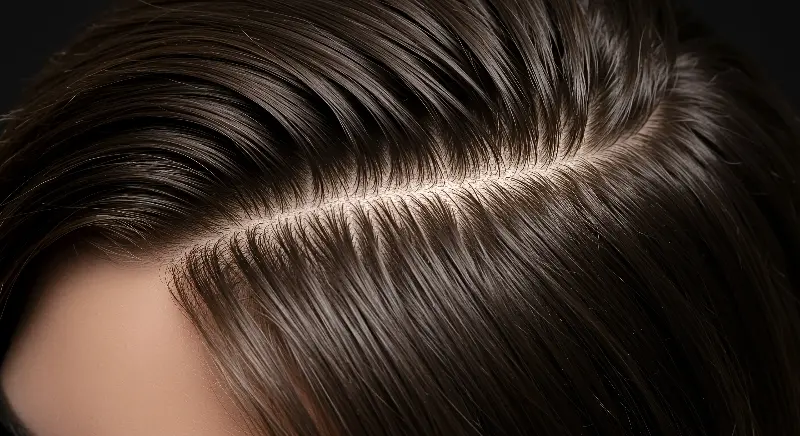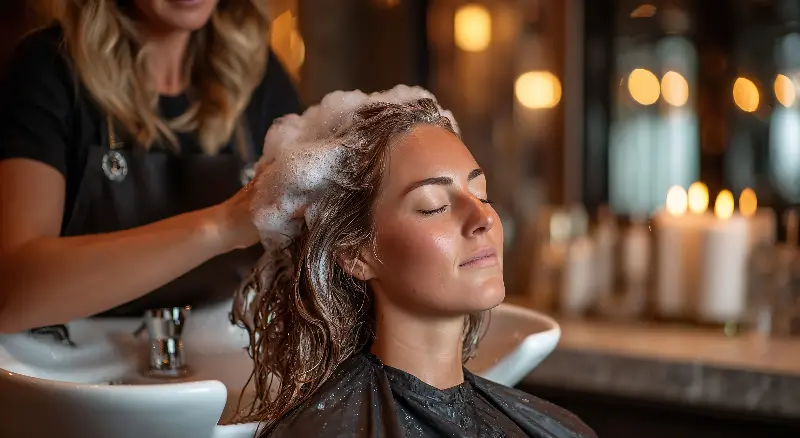A healthy scalp might not be the first thing you think about when admiring someone’s stunning hair, but it’s the true foundation for strong, vibrant locks. Behind every head of beautiful hair is a carefully nurtured scalp—and yet, so many people overlook scalp care in their daily routines. Whether you're aiming for lusher volume, tackling hair thinning, or simply want your hair to look and feel its best, knowing the essentials of scalp care can make all the difference.

Why Scalp Care Matters
Hair health truly begins at the roots. Your scalp is a living environment, much like the skin on the rest of your body, but with its own unique needs. It’s loaded with tiny oil glands, hair follicles, and a delicate balance of bacteria and yeast that help keep everything in check. If this environment is disturbed, it can lead to a host of issues—dryness, itchiness, flaking, excess oil, and even hair loss.
Our modern lives aren’t making things any easier for scalp health. Urban pollution, stress, frequent styling, and the use of harsh products can all compromise your scalp’s balance. The result? Struggling follicles, slowed hair growth, and lackluster strands. Good scalp care, though, is surprisingly simple and can have dramatic results.
The Key Steps to an Effective Scalp Care Routine
Cleansing is the first crucial step. Just like the skin on your face, your scalp needs to be free from excess oil, sweat, dead skin cells, and product build-up. Use a gentle shampoo that suits your hair type—sulfate-free is often a good choice for those with sensitive or easily irritated skin. For oily scalps, look for clarifying formulas, but don’t overdo it, as stripping all oils can backfire.
What often goes unnoticed is the importance of massage. Massaging your scalp for just a couple of minutes while shampooing boosts blood flow, which helps deliver precious nutrients and oxygen to hair follicles. A regular scalp massage can even stimulate hair growth and help reduce stress.
Exfoliation isn’t just for your face. Once or twice a week, using a dedicated scalp scrub or a gentle exfoliating brush can help slough off dead skin cells and clear out pores. This step is particularly helpful for people experiencing dandruff or persistent flakiness. As always, moderation is key—over-exfoliating can irritate the scalp and trigger more oil production.
Hydration is also essential. After cleansing, consider using a lightweight, leave-in tonic or spray formulated for scalp health. Ingredients like aloe vera, tea tree oil, and niacinamide have been shown to calm irritation and help restore balance. Avoid heavy conditioners or oils directly on the scalp, as these can weigh down roots or clog follicles.

Secret Ingredients Worth Knowing
Today’s hair care market is rich with innovative ingredients targeting scalp health. One of the most buzzed-about is caffeine—research suggests that it can stimulate hair follicles and promote thicker growth. Niacinamide, a derivative of vitamin B3, supports the skin barrier and may help with redness or sensitivity. Peppermint and tea tree oils aren’t just cooling—they’re naturally antimicrobial, which can fight the bacteria and yeast that sometimes lead to dandruff.
Don’t overlook natural oils, either. Jojoba oil, for example, closely mimics the scalp’s own sebum and is fantastic for balancing oil production. Argan oil delivers deep hydration without clogging pores, and rosemary oil may support hair growth and improve scalp circulation.
These active ingredients work best when used consistently in forms tailored for the scalp. Avoid using straight essential oils, though—these are highly concentrated and can easily irritate the skin unless diluted properly.
The Influence of Lifestyle on Scalp Health
Your routine doesn’t stop with topical treatments. Everything from your diet to how you style your hair can impact the health of your scalp. Eating a balanced diet rich in proteins, vitamins, and healthy fats lays the groundwork for better skin and hair. Vitamins A, C, D, E, and all the B vitamins—especially biotin—play crucial roles in hair follicle function.
Chronic stress is another underappreciated factor. Elevated stress hormones can disrupt the scalp’s oil production and even trigger shedding. Simple measures like mindfulness, regular exercise, and enough sleep can improve your overall scalp environment.
Steaming your scalp occasionally—either with a warm towel or while in the shower—can help open follicles, making treatments more effective and promoting relaxation.
Finally, adopt smarter styling habits. Avoid tight hairstyles that pull at the roots, don't overuse dry shampoos, and always rinse out product residue thoroughly. Excessive heat from blow dryers or styling tools can damage the scalp just as much as the hair itself.
When to Seek Professional Help
If you’re experiencing persistent itchiness, redness, flaking, or sudden hair loss, don’t ignore the signs. Sometimes, these can indicate underlying medical conditions like seborrheic dermatitis or alopecia, which require targeted treatments from a dermatologist or trichologist. Early intervention often leads to better results.
Creating a mindful scalp care routine might add a few more minutes to your shower, but the results speak for themselves. With a little attention to your scalp, you’ll find your hair becoming noticeably stronger, shinier, and more resilient. After all, great hair starts at the roots—so give your scalp the care and love it truly deserves.
